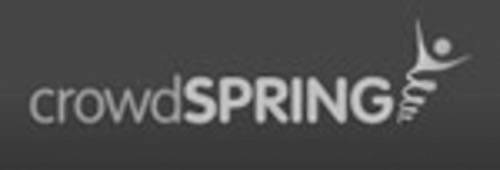In the last few months, we’ve focused from time to time on design and how it affects startups. One of the larger issues that comes up that goes hand-in-hand with design is the copywriting that accompanies that design. The importance of carefully crafted wording can not be understated; after all, the words are what actually speaks to your audience when they visit your site. Copywriting is as much an art and a skill as design is, and that’s why the crowdsourced design network crowdSPRING is now including copywriting jobs for bids on their site.

As of Wednesday, the popular service opened up their designer’s club to include copywriters. Now clients looking to crowdsource text for any use can log onto crowdSPRING, set up a contest for users to submit their work to, set a reward price, and watch the entries roll in. The writing jobs can be as short as a name for company or text for a website, or as long as an essay, script or book. Various types of writing jobs are grouped into five categories: business, creative, editing, naming and online.
So far only ten jobs have been submitted, but the site’s network has already feverishly kicked into gear, submitting nearly 1500 entries in just over a day. The current projects range in reward payout from $200 to $1500, the latter being a private project asking for a presentation.
Another of these first ten projects posted comes from the City of Chicago which is hosting an elevator pitch contest on the site. Chicago-based Small businesses can submit a written version of their 30 second pitch for a chance to win $500 and a free booth at the upcoming Small Business Expo in July.
“By using crowdSPRING for our annual competition, we’re hoping to get some amazing elevator pitches,” said Chicago City Treasurer Stephanie Neely. “We’re optimistic we’ll find the talent we need and build buzz around our competition, and hope the innovative submission process will help drive participation and attendance around our business plan competition.”

Earlier this week, we discussed whether crowdsourcing and outsourcing were wise business practices for startups. Some argued that early stage startups may be too fragile to rely too heavily on these practices, but most agreed that if used correctly, crowdsourcing and outsourcing could be valuable tools to startups. In this light, startups can certainly benefit from these new services provided by crowdSPRING.
Startups without the sufficient staff to cover media and public relations can use the service to produce emails, newsletters, blogs and other materials they may not be able to create effectively on their own. First time entrepreneurs who’ve never written a business plan can now use the site to crowdsource a solution instead of toiling over it themselves, provided they give the applicants sufficient information regarding the company. At the very least, an entry like this could be modified or used as a starting point for a more involved plan.
However, a startup may be reluctant to crowdsource business materials for fear of revealing private business information to the site’s users. What if a user sees a job for a business plan detailing a startups roadmap for success and decides to steal the idea? According to crowdSPRING, they have been forced to ban users for violating the site’s IP rules in the past.
“We work together with our entire community… to identify possible violations of intellectual property,” the site says. “We expect that people in our community will share the community’s core values, which includes the protection of and respect for intellectual property.”
It seems that IP security is not something crowdSPRING takes lightly, as this blog post makes very clear. For any business, theft of intellectual property is an inherent risk with oursourcing and crowdsouring, but it would seem that the service is going to great lengths to ensure their users are safe.
Photo by Flickr user Unhindered by Talent.





















